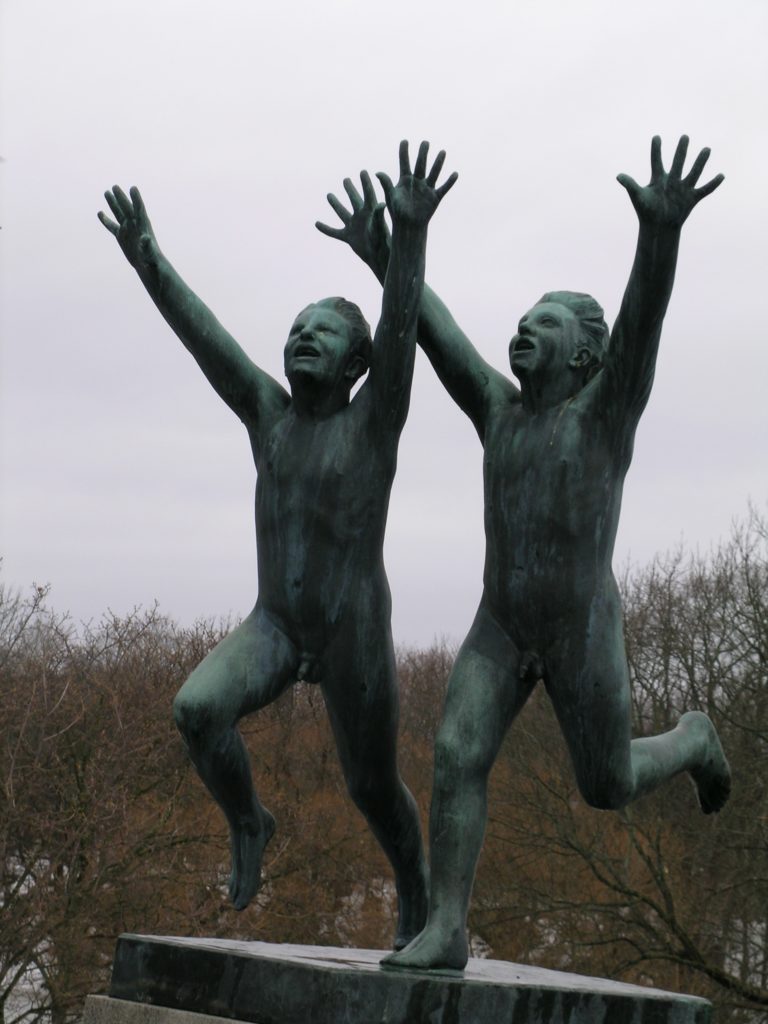Approach: Process is flow
Often, those experiences in life that look like and are real problems, are also dissonances that are showing what is trying to express itself. Often these dissonances feel like blockages. By following experiences that you are not quite aware of in the midst of the difficulty in a creative, process-oriented way you can learn a lot about yourself and what is trying to become visible, and even discover surprising new directions and solutions. Process Work can be helpful in getting unstuck and allowing the movement trying to happen, to flow.
https://youtu.be/otaUK5p6vvI
Process Work
We use Process Work to guide our work and help nourish our dreams. Process Work is a whole-system approach to human health and quality of life, relationships, teams and organizations. Process Work is a strengths-based approach for engaging with experience in real time – with a person reliant on support, leaders, managers, caregivers, specialists, teams and whole communities. The coach/facilitator follows thoughts, feelings, movements, sounds, intuitions, environment, smells, atmosphere, body experiences. These are all important for the full spectrum of information trying to emerge to become visible and animate shifts in mindsets and practice for better lives in kinder, more interesting and open minded world.
The roots of Process Work are in science, psychology, sociology and timeless wisdom. Thank you to our teachers: Nature, the founders of Process Work Amy and Arnold Mindell, the co-founders of the global Deep Democracy Institute (DDI) Ellen and Max Schupbach, Julie Diamond founder of Diamond Leadership. Thank you to the many many people we work with and learn from around the world, who teach through diverse abilities and states of mind what it means to be human and build community. We bow to humanity’s wisdom teachers, ancient and contemporary.
[We use] the entire spectrum of Process Work in our work and training. We believe that individual and global health, social change, global and local economics, politics, local and global conflicts, personal development, spiritual and religious directions, environmental concerns on global and universal scale, and social justice, are all interconnected and need to be worked on together while understanding that the world outside is reflected in our inner lives; and realizing that working on our inner life influences the outer reality.

The joy principle
Following the joy principle means that following your unique path of inner happiness is more likely to be joyous, and less likely to hurt others.
Joy is a basic life attitude of optimism and buoyancy. A basic belief that even amidst unfathomable difficulties, things will work out over time. Happiness is an attitude, a practical skill set, and a unique pattern that moves us as we zig zag through life. We have personal and collective choices in how to react. This attitude and skill set guides our understanding of happiness – in personal, professional and organisational learning and growth.
The students of the great Chassidic Rabbi, Reb Zusha, once asked him about his greatest fear. He replied that he was not worried about living up to Moses or Abraham. Rather, his concern was that, upon his death, God would ask him, “Zusha, why weren’t you Zusha?”

The role of organisations
We view individual, social and global visions and concerns as an entire, interconnected information system. Organisations are living, breathing systems. Human service agencies and provider networks attract a great diversity of people, needs, backgrounds, cultures, and life experiences – in people who seek their services and in those who work there. Global issues play out locally. Personal problems, diversity and marginalisation, power and rank are grappled with.
Happiness, health and prosperity depend on everyone and the effects have a ripple effect throughout society, through the people involved. Organisations are potential world changers on your doorstep. Worldwork hubs for people to learn and grow with, good for the planet, and good for your bottom line.

Our viewpoint on change
We apply the philosophy of deep democracy, a term coined by Arnold Mindell in the 1980s. Deep democracy is an inclusive approach to personal health, relationships, client interactions and outcomes, team work and community vibrancy as interconnected aspects of the entire system.
Turning Forward embraces the belief that most people do better in an open minded environment. We assist you to discover and follow your compass, uncover hidden directions, enjoy interactions and befriend differences, interact skilfully with unexpected challenges and conflicts as they arise, and accomplish your longer term goals.
People, nature and systems evolve. At times radical and decisive steps are necessary for survival, human safety and dignity. And … forced change alone, is usually temporary and unsustainable in the long term.
We believe changes become sustainable when the people expected to make them are evolving in the driving seat of their own life, and turn their own situation, team and organisation forward – because they want to. In our experience, this applies equally to the people reliant on assistance and care, as to practitioners at the front line, their supervisors, and the leaders and administrators who carry the vision and ultimate responsibility. We love to create development opportunities for people, staff and teams to take initiative, interact well and be effective in today’s world.

We are students of change, not makers of change
Processwork principles
The world is here to help us become our entire selves, and we are here to help the world become whole
Our own perception of reality, state of mind and attitude to life is reflected in what catches our attention in the outer world and the way we relate to what we notice. Quantum physics calls this the observer effect, where the observer’s view influences what he or she sees, experiences and interprets.
In psychology, this is commonly understood as projection, where a flaw you perceive in someone else, is viewed as your own flaw. It is as if you are looking in a mirror and believe you are seeing the other person.
In contrast, a Processwork attitude views what disturbs or moves me, as an aspect of myself that is wanting to be expressed even more fully. For instance, what I worship in you in a godlike way, may be prompting me to open up to my own inner wisdom and follow it. My disturbance at your tone being too forceful, may be my own powerful tendency wanting to come out more. The basic idea is that disturbances and stuck moments can be opportunities to connect with emerging futuristic aspects of ourselves.
Jung introduced to the field of psychology an understanding of self as containing multiple roles, interacting throughout life according to an essential pattern. Jungian psychology broadened the view of the human being from a simplistic machine to a complex open system – a mystery to be unfolded. This idea humanizes direct support professionals, who belong, like their clients, to universal humanity, and thus partake in a similar human journey.
As a therapist, Mindell discovered that the therapy room was inadequate for many of his clients, whose body symptoms, personal and relationship problems were connected with larger social and community issues. He introduced worldwork as a group process interaction method, and deep democracy as an inclusive attitude to feelings and deepest beliefs.
Worldwork allows for multiple perspectives within individuals and groups to become more visible. Less valued identities and perspectives often remain hidden. Social oppression systems, conflicts, power and rank, and health issues that impact on the individual and relationships and community, reveal themselves. New insights and solutions arise from fresh and frank interaction.
Personal Well-being, Health and Social/political Factors
The worldwork dynamic role play method allows for the whole information system to enter the room. Turning Forward facilitators support the various polarities and perspectives within people and groups, to become visible, to be felt, and get a bit closer to each other. Processwork’s signal-based tracking methods allow the facilitator/coach/participant to follow exactly what is occurring in multiple communication channels, even in the midst of chaos.
This application allows for a shared realization at any level – personal, relationship, team or large group – to discover that a community problem is often carried by a person, and how personal health, social, economic and political issues belong to the whole community. Health and body experiences are connected with marginalized identities, relationship experiences, altered and extreme states, awareness of rank, power and privilege. This develops an ability to engage with conflict fruitfully.
Since the latter 20thcentury, the new sciences have shed light on the role of the human mind – how we see the world, what happens when we interact, and the nature of change. Linear cause and effect explanations and solutions are often inadequate for complex situations where different levels of experience and oppression systems intersect. It is becoming less possible to deal with the big global dilemmas at arms length. Personal safety, climate change, civil unrest and war, refugees, poverty, human health, clean water, elder care, disability – are somehow strangely connected. A small movement in one area can have a huge impact somewhere else, as in the butterfly effect. We know that change will happen. Change is happening. How it will happen, when it will happen, and the impact it will have, is unpredictable.
Levels of information and experience are also interconnected. Objective facts, subjective feelings and deepest beliefs and essences are in constant interplay, affecting and changing each other. This is as true for a person reliant on care, caregivers, leaders, teams and family as for an organisation as a whole. Just like people and relationships, organisations have their own patterns of interaction, go through phases, and self-balance over time. Processwork as a facilitation approach allows for hidden information in the system to become visible so that the entire system can process its learning, growth and change, for more humanly sustainable solutions.
In a care setting, individuals may communicate differently to those supporting them, and may be in an altered or extreme state of mind or show unusual behaviour traits and quirks. Process Work supports the ability to learn from and with the person and discover what is trying to emerge. Amy Mindell coined the term metaskills for basic attitudes that help to create a good atmosphere in which the individual can bring out what is inside. For instance, kindness, open-mindedness, appreciation and a respect for timing are basic characteristics that enable both caregiver and the person receiving support, to flourish.
Turning Forward coaches work with Processwork’s dual attentiveness. A ‘first attention’ is alert and tracking what is happening moment by moment, signal by signal, in various communication channels. A more detached ‘second attention’ is sensing and appreciating the larger field’s atmosphere and influences. Feelings and intuitions reveal unexpected insights. Rather than seeing the person as the problem, everything is seen as meaningful within a larger pattern and wholeness. In this light, engaging with individual, team and community struggles is an attempt to work with larger social and global issues.
Rather than imposing a particular idea about what you should or should not do, or acting on pre-determined steps, every intervention has a unique purpose. Exactly what to do and when to do it, cannot be programmed. Interaction awareness trains the ability to follow, unfold and be responsive to the process, with a deep respect for timing. When to wait and when to engage. When to be still and when to speak. When to act and when to allow the solution to show itself. Situational rank is the power you get from the organisational role you are in. Personal power on the other hand is intrinsic, and thus transportable, allowing for a positive ripple effect in any context.
Anyone who has survived custodial care, has much to teach about surviving adversity against all odds, being human and creating community. People who have endured restrictive and oppressive situations often have lessons to teach about adversity, developing centeredness in volatile situations. This includes an ability to feel and hold both sides of a tension and suspend judgement in order to help the situation move forward for the greater good.
A special eldership attitude belongs to these inner resources – beyond age, status, ability and state of mind. Eldership is about being real, being able to tolerate the tension inside the mess, and at the same time bringing more flow to stuck situations with an all-embracing good heartedness. Eldership rises above narrow roles and categories. Moments of eldership enhance human connection, insight and motivation. For anyone with a diminished experience of power and influence through the hand they were dealt in life, these inner capabilities can increase a sense of power. Having a sense of personal power is a game changer as can be attested to by anyone who has faced adversity and made a difference in spite of it. Personal power helps bring forth what matters most.
Field-effect – self-organising principle
Bringing more relatedness between the different and disparate parts of ourselves, our teams, the organisation and the whole system can bring relief, energy and improved results. The key is to use awareness to support the parts to relate better to one another. Rather than thinking only of solving the problem out there, the drama out there exists inside me as well. Our work encourages facilitators and participants alike, to think and feel into the relationship between the different parts on the inside and outside, and facilitate them to get to know each other.
Democracy attempts to make equal power, equal rights. This is important. We also need a deeper democracy, the human right to dream, to discover our deepest self, have the courage to bring out what really matters, in public in ways that are helpful. Deep democracy means being open to noticing all levels of experience: tangible events and the less tangible atmosphere we are immersed in and that is influencing us. This is a bit like the whole brain, that contains a left hemisphere which divides and categorises, and a right hemisphere that pulls towards interconnectedness. In any system (a person, a team, an entire organisation) these various levels of experience are governed by a pattern – like a system mind that over time creates self-balancing. Too much of one thing will swing towards equilibrium, often via chaos or crisis. Deep democracy facilitation helps to accompany the swings with awareness so that the essential pattern can be more creative over time.
Our Viewpoint on Power
Awareness is needed to bring democracy’s most cherished ideals to life both in the private and political arenas. Laws can be passed to outlaw racism … yet if our hearts and minds are not changed as well, and we are not aware of the subtle ways in which we influence one another in our moment-to-moment interactions, then even the best laws can only cover over deep seated conflicts and wounds
To learn to use your power well is important for anyone. For people reliant on care and support, whose daily lives are so dependent on others, the use and impact of power can be transformational and devastating, with lifelong consequences.
We think that everyone has access to inner power. Being centred when the ground under you wobbles is an inner power. Being detached when you are stuck in the mess and need a bigger perspective is an inner power. Those who use inner powers well, tend to use positional and structural power well too. Those reliant on care and support with less outer agency often have developed inner powers through sheer force of necessity, and have a lot to teach about being human, radical happiness, the importance of kindness, and getting along together.
- Feel your innate powers, and use them to steer you boat through the currents
- Become more aware of polarised parts inside you and help them interact
- Learn to defend yourself against hurtful social, cultural critics and extract useful leaning from attacks from within and without
- Discover your own creative solutions
- Use inner powers to shift your mood and state of mind, and to influence the people and environment around you


